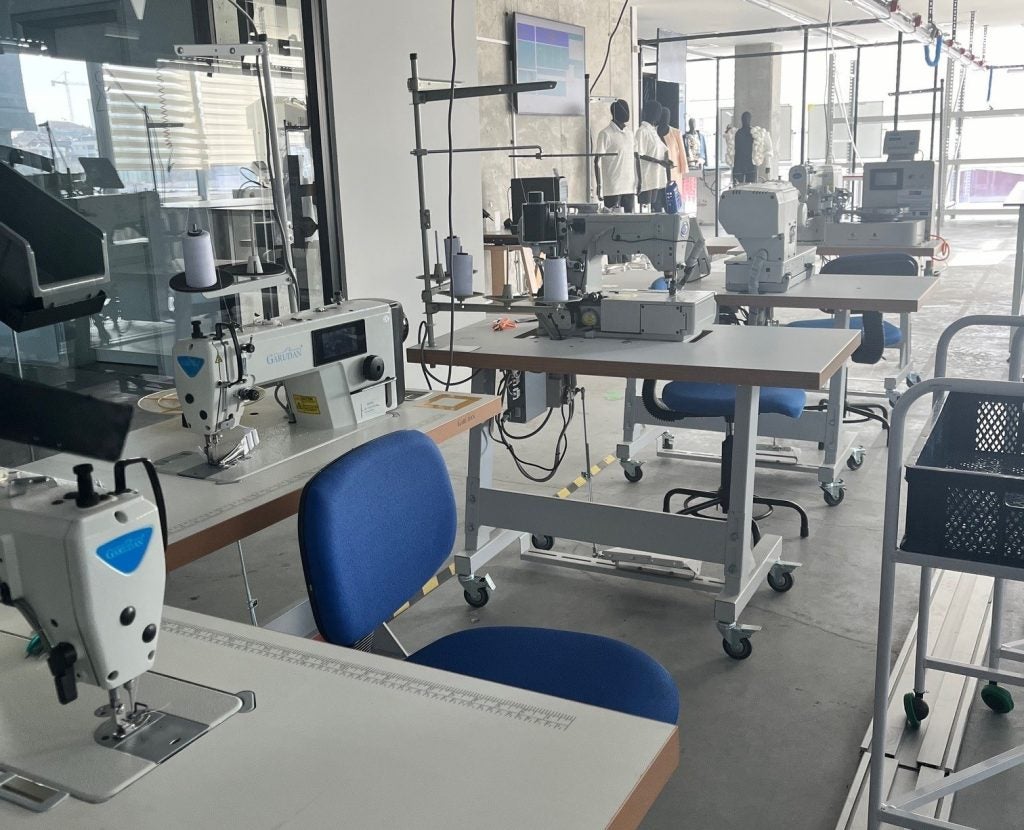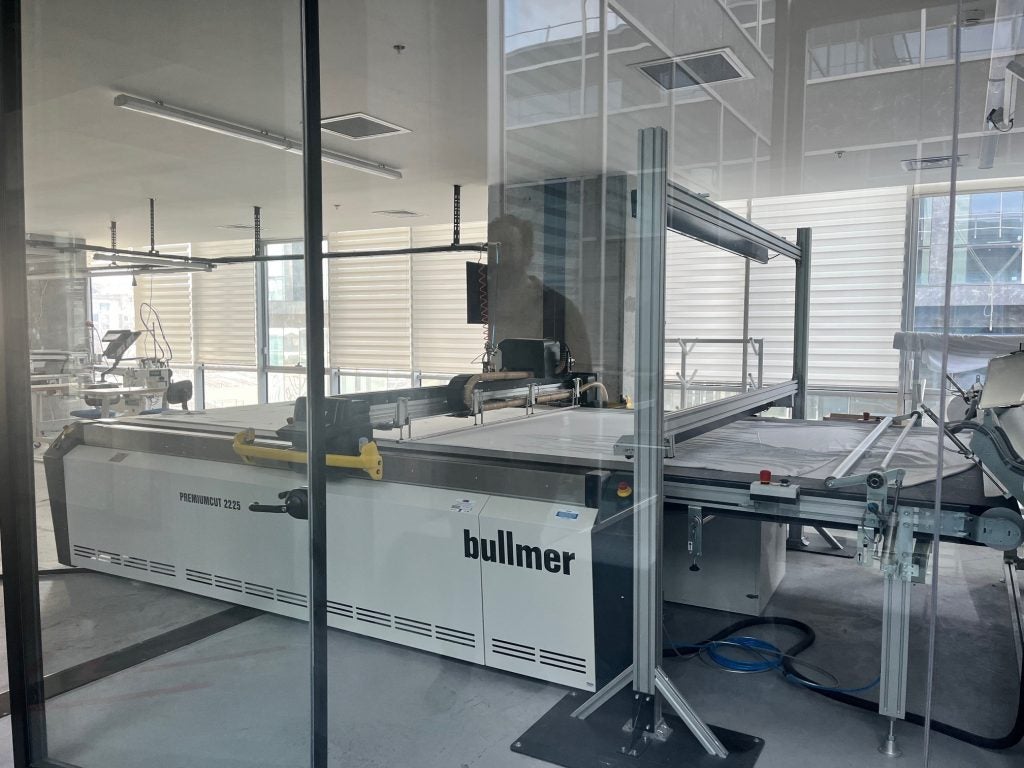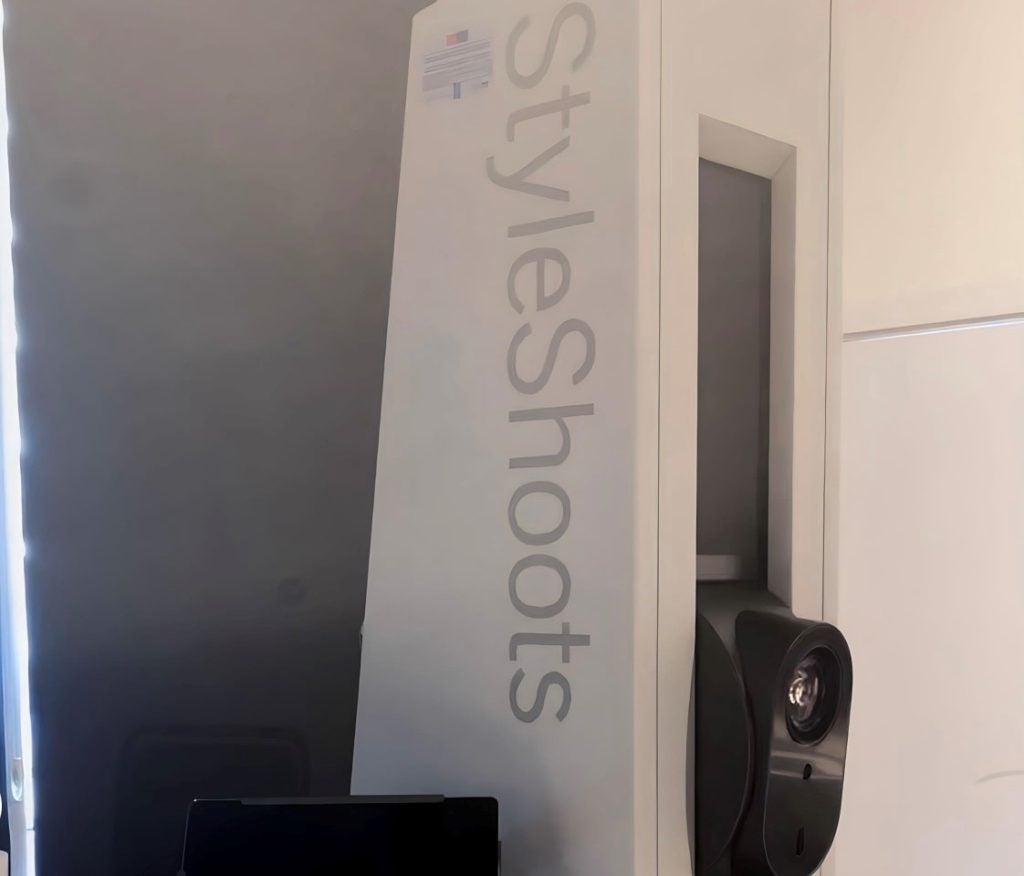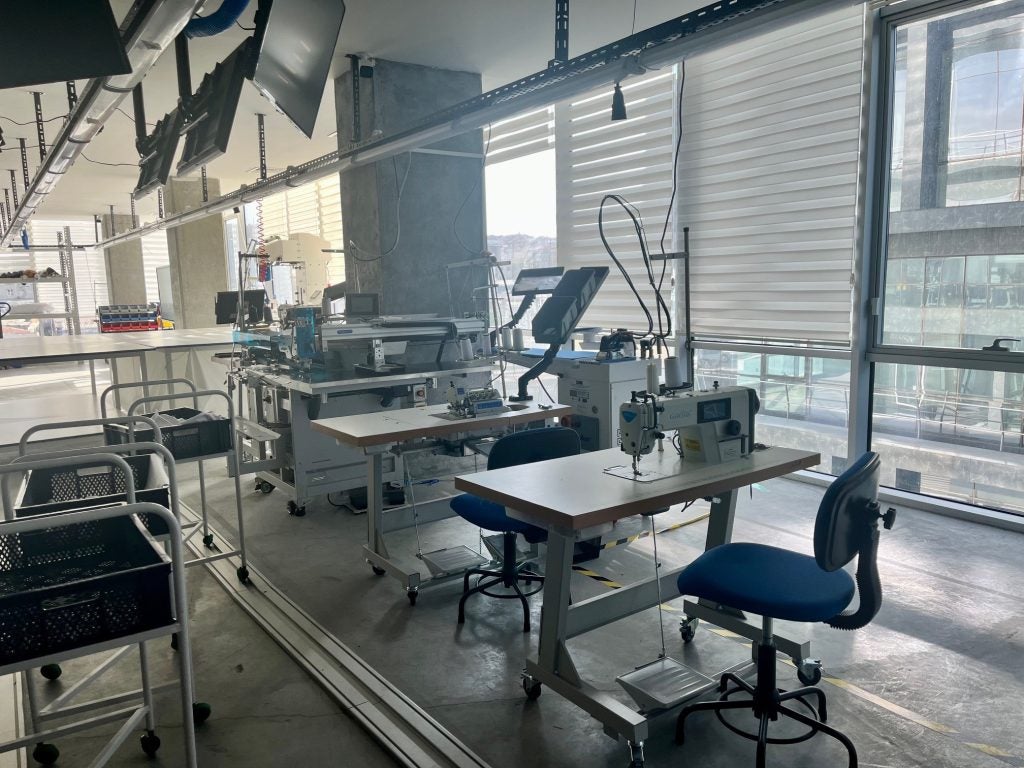Nestled in the heart of Istanbul, the Digital Transformation Centre (DDM), which was established in cooperation with Istanbul Fashion Academy and İHKİB in 2021, stands as a testament to the evolving landscape of the ready-made clothing industry.
The project has now reached its third year in business with plans to move into a new building by the end of this year, according to Hülya Güner the apparel R&D department chief for IHKIB.
The DDM offers a comprehensive suite of services designed to propel IHKIB member SMEs into the digital age.

The centre manager Davut Eren Şadoğlu described the innovation as an “exhibition centre for solutions providers,” that offers “quality control, artificial intelligence (AI) and paper-free solutions.”
As he took us on a tour around the facility, Şadoğlu described the project as offering digital transformation services personalised to the sector and the specific needs of companies, devising complimentary training programmes in fashion design and delivering them to designers and small to medium enterprises (SMEs).

This includes transitioning to e-commerce platforms, digital brand and content creation, data analysis, and solutions based on AI.
How the Digital Transformation Centre assesses eligibility
For companies to be eligible for the project, DDM applies the SIRI digital maturity measurement tool to measure their current state of digitalisation to begin creating roadmaps for them.
The assessment process consists of four stages to be able to share findings and the right recommendations for companies, these include:
- Preparation
- Assessment workshop
- Gap analysis workshops
- Information session
Güner shared that DDM “gives companies within the country and in the EU, services in all areas of the value chain.”
The DDM website adds that the goal is to enhance competitive edge, increase productivity, and strengthen customer relationships for enterprises within the fashion and apparel industry.
Key to its approach is a team of industry experts with years of experience in the garment sector. Drawing on their wealth of knowledge and expertise, the team provides guidance and programmes to equip participants with essential digital skills to enhance their competencies in the field.
Şadoğlu explained how the centre extends beyond technological innovations by also providing social and Digital Product Passport (DPP) compliance, design and photo studio services.

He added: “Through services like technology integration, education, consultancy and content creation we guide businesses.”

He went on to say that the training programmes are separated into 3 levels for operators, engineers and managers.
Tools and technologies provided by the DDM
During the tour of the Digital Transformation Centre, Şadoğlu demonstrated the various tools it provides for fashion brands' e-commerce businesses, designers and manufacturers such as:
- Computer-aided pattern programmes,
- 3D fashion design programmes,
- Transfer printing machines,
- Photography studios,
- Additive manufacturing applications in apparel and textiles,
- Industry 4.0 in logistics, manufacturing productivity and automation,
- Industry 4.0 machinery implementation.
In addition to its consultancy services, the Centre also plays a role in fostering collaboration and innovation within the industry. Through initiatives such as the “Learn & Transform” programme and partnerships with technology startups, the Centre aims to facilitate the exchange of ideas and resources, driving forward the development of new products and solutions tailored to the industry's specific needs.
Türkiye's apparel sector on the path to digitalisation
Textile and clothing stand as prominent sectors that contribute significantly to Türkiye’s economic growth. Türkiye’s ability to compete in global markets is bolstered by its production of high-quality goods, its proximity to major markets, its agile and efficient production processes, and its skilled workforce.
However, despite these advantages, the insufficient digitisation of design within the industry poses challenges in competing against established countries and corporations in international markets.
In 2020 McKinsey & Company found that on a global scale, technologies at the time had the potential to help automate 50% of jobs in a report titled: Türkiye’s Talent Transformation in the Digital Era.
It discovered that In Türkiye, over one-third of the activities performed in 60% of occupations could be automated. At the forefront of sectors with significant potential for automation in terms of full-time job equivalents (FTE) were manufacturing and agriculture, followed closely by the retail sales and service sectors.
However, the country did not start investing in digitalisation until the effects of the pandemic in 2021 which was the birth year of the Transformation Centre project.
Mehmet Kaya, board member of IHKIB and general manager of TYH Textiles had said: “The pandemic has changed everything, shaking the business from the top to the bottom. Digitalisation and 3D facilities for sampling to production to enable easy traceability and fast sampling have become essential due to the pandemic.”
Business interactions and showcasing products also became increasingly digital, further accelerated by the pandemic. “We used to visit our customers with big suitcases to show everything physically, now it is via a digital showroom or with a laptop. This has been a big change for the industry.”
Back then Türkiye’s apparel sector understood the importance of digitalisation and e-commerce, with retailers selling more online during the pandemic, requiring quick deliveries to market, near-shoring, improved inventory management and innovation.
Indeed, the İHKİB Digital Transformation Centre stands as a beacon of hope and possibility for businesses seeking to thrive in an increasingly digital world.
With its commitment to innovation, sustainability, and social responsibility, the Centre is not only shaping the future of the ready-made clothing industry but also paving the way for a more ethical, sustainable, and digital future for all.
















